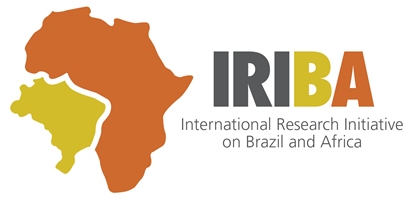WATCH: Ernani Torres on the BNDES & the current economic climate
IRIBA researcher Ernani Torres outlines the role of the BNDES in Brazil, and how it is changing given the current economic and political climate.
WATCH: Tom Trebat discusses infrastructure challenges in Brazil
IRIBA researcher Tom Trebat outlines some of the challenges facing proponents of infrastructure development in Brazil, and the government’s increasing emphasis on private sector financing.
FINDINGS: EMBRAPA & new challenges for agricultural R&D in Brazil
As presented at our 2016 Rio de Janeiro findings workshop by IRIBA researcher Paulo Figueiredo. Listen now:
FINDINGS: The life-cycle of Brazil’s national development bank, BNDES
As presented at our 2016 Rio de Janeiro findings workshop by IRIBA researcher Ernani Torres. Listen in Portuguese:
FINDINGS: The role of fiscal & monetary policies in the Brazilian economy
As presented at our 2016 Rio de Janeiro findings workshop by IRIBA researchers José Afonso and Bernardo Fajardo. Listen in Portuguese:
Brazil and corruption: don’t hate the player, hate the game?
Much of IRIBA’s research has been cautiously optimistic, analysing changes that saw Brazil embark on a path of pro-poor growth and consolidate its newly redemocratised institutions. Now, the distinctive development ‘model’ that emerged in the early 2000s faces its first major challeng
Social policy and inclusive growth in Brazil
Inclusive growth doesn’t come out of nowhere. IRIBA’s Professor Armando Barrientos explains the ways in which socially-oriented policy decisions led to economic growth that primarily helped to increase the incomes and wellbeing of Brazil’s poorest, rather than that o
November 18, 2016
Comments are off
Q&A: Luis Paiva on the success and future of Bolsa Família
Brazil’s Bolsa Família programme has been credited with helping to significantly reduce levels of absolute poverty and inequality in Brazil. Started in 2003, and funded by less than 0.5% of the country’s GDP, it now facilitates small cash transfers to 46 million Brazilians
Brazil in political crisis: what has happened, and what might it mean for development?
IRIBA’s research has argued that in recent decades Brazil has followed a distinctive development trajectory. This has centred on inclusive growth and the use of innovative tax-financed social policy in reducing poverty and inequality and bolstering long term human development. However
Policy in Focus: The Brazilian model of Development
By Armando Barrientos and Edmund Amann. Originally published in Policy In Focus, a publication of the UNDP’s International Policy Centre for Inclusive Growth. As the world begins to wake up to the dire social and economic consequences of rising inequality, we must recognise that it is
12
© IRIBA 2014 | All rights reserved I Google+
Hosted by The Brooks World Poverty Institute
